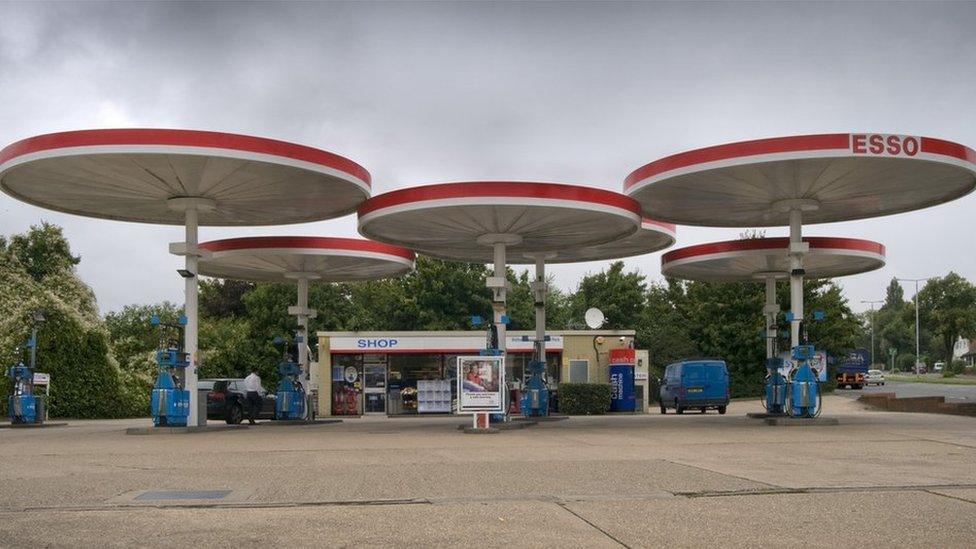Historic post-war pubs given listed status
- Published
Five English pubs built after the Second World War have been given Grade II listed status by the Department for Digital, Culture, Media and Sport on the advice of Historic England.
The pubs are valued for their architecture and history, including one designed around the nursery rhyme "This is the House that Jack Built", and one themed around the Romans in Britain.
Their new listed status means they will receive special protection, so they can be enjoyed by current and future generations.
In post-war years, thousands of pubs were built in areas such as housing estates, next to shops, community halls, churches and in cities damaged by wartime bombing.
From the 1960s onwards, themed pubs became increasingly popular.
The Centurion Public House, Bath, Somerset
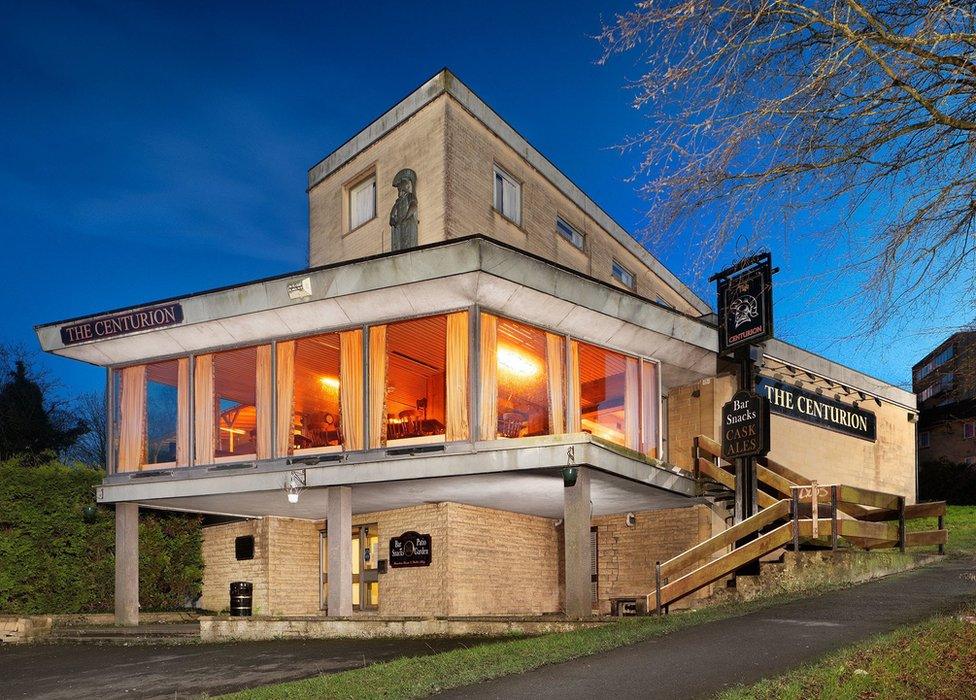
Newly-listed pub The Centurion in Bath was built in 1965 and features a large bronze figure of a Roman Centurion on its exterior and a statue of Julius Caesar in the lounge bar.
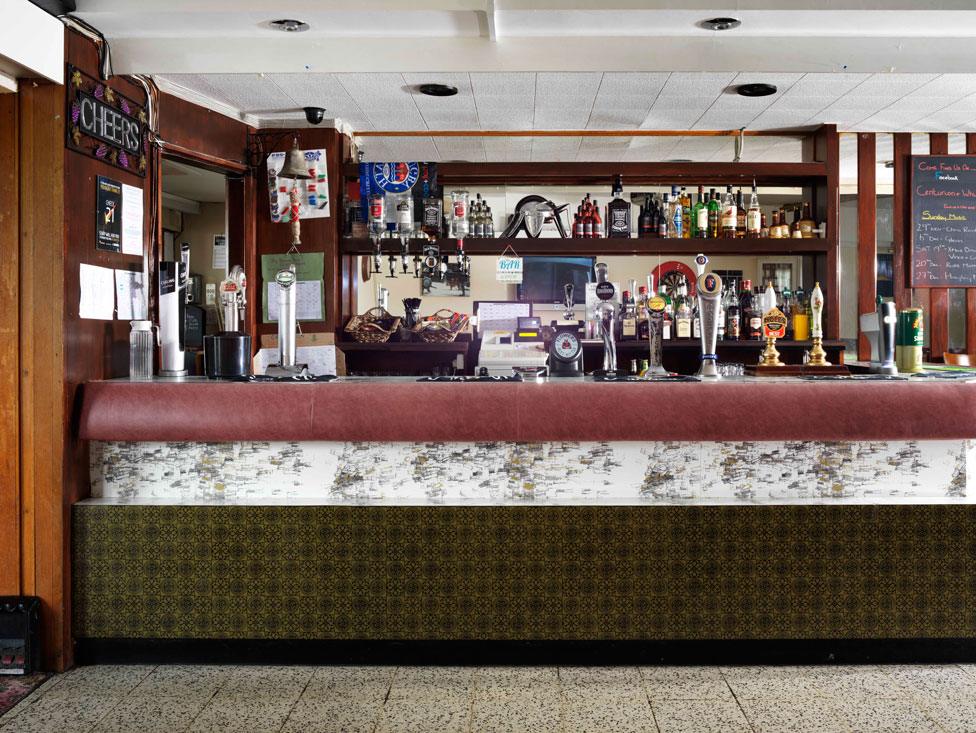
The building is a rectangular block of four floors, clad in reconstituted Bath stone, and retains many of its original fittings, including aluminium doors and rubber seals which formed part of a pressuring system to counteract draughts.
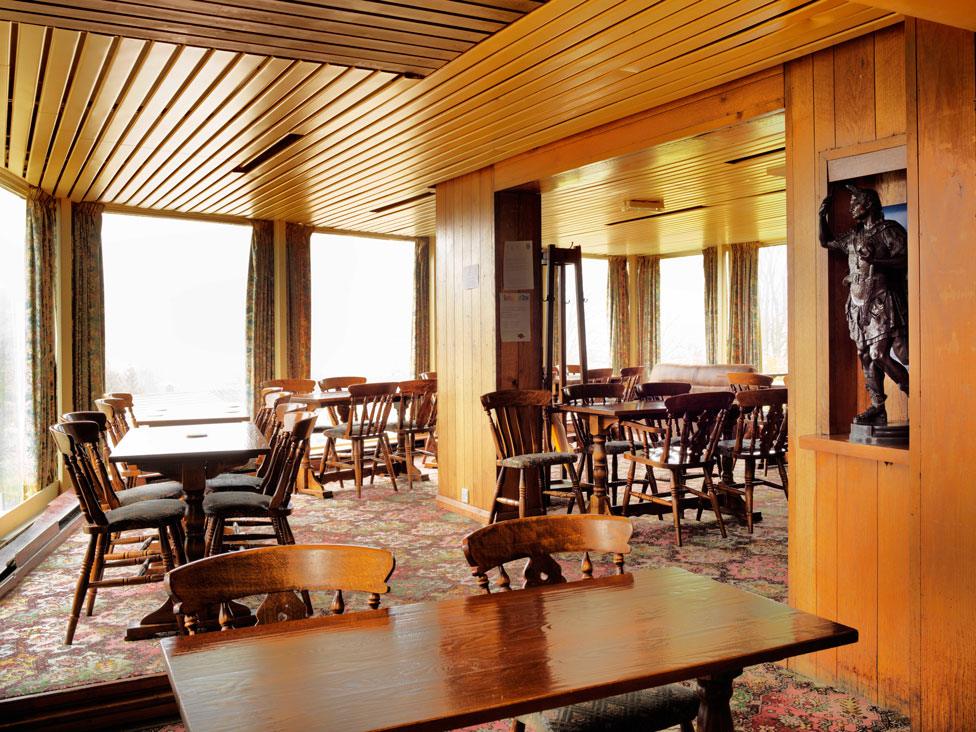
The Never Turn Back, Caister-on-Sea, Norfolk
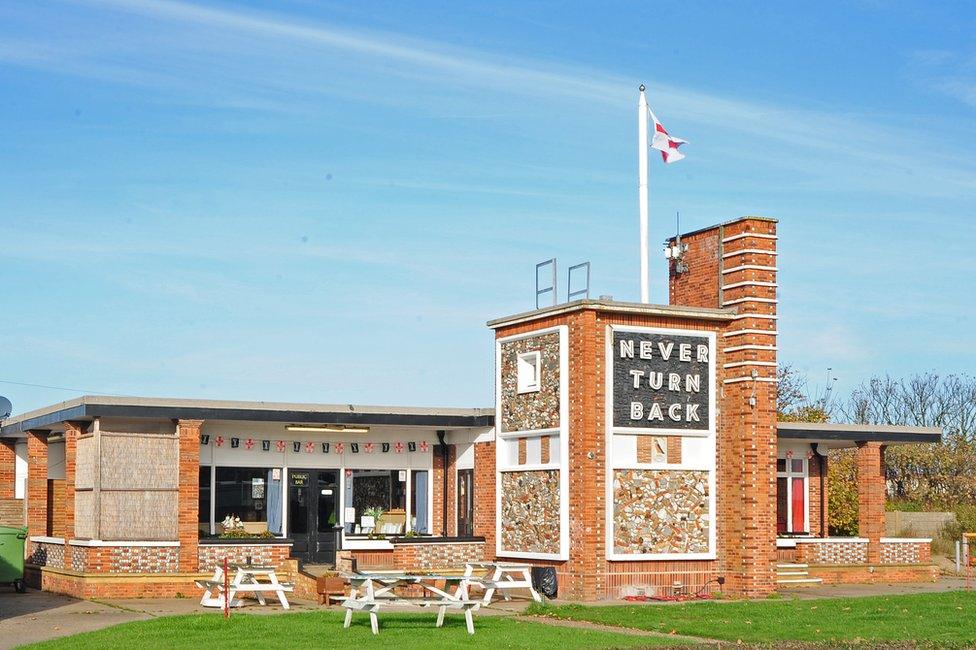
The Never Turn Back pub, built in 1957, is the only pub in the country with the name. It was chosen as a memorial to the Caister Lifeboat disaster of 1901 in which nine lifeboatmen died.
The pub's designer, AW Ecclestone, focused on using traditional materials like flint and cobbles, in a Moderne and Art Deco architecture styles that references its coastal location and association with the local lifeboat service.
The tower is designed to resemble a ship's wheelhouse and a lookout tower.
The Crumpled Horn, Swindon, Wiltshire
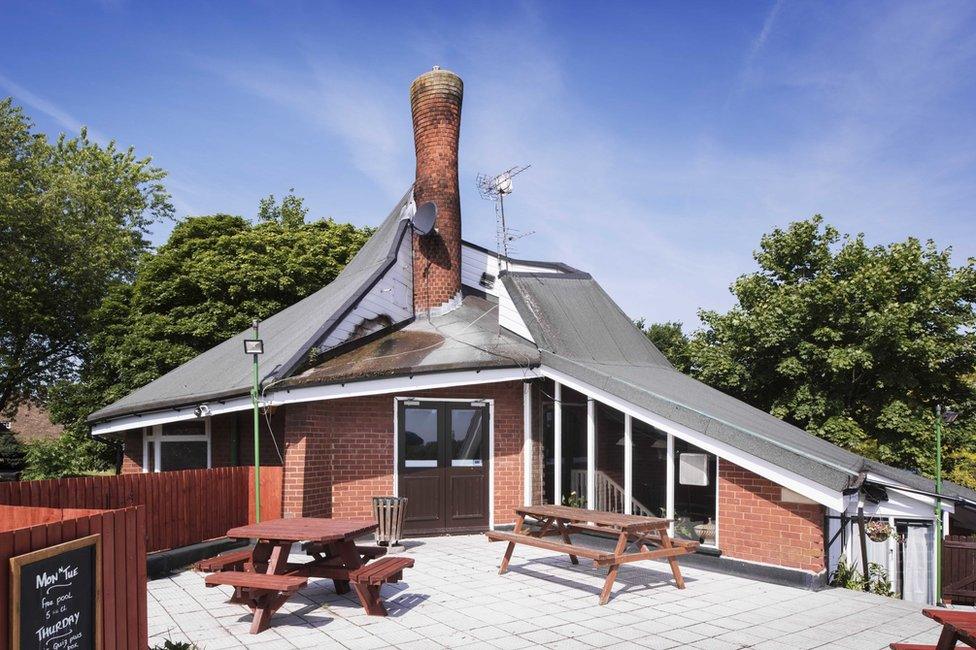
Estate pub The Crumpled Horn in Swindon was built in 1975, designed by Roy Wilson-Smith and based on the theme of the nursery rhyme 'This is the House that Jack Built'.
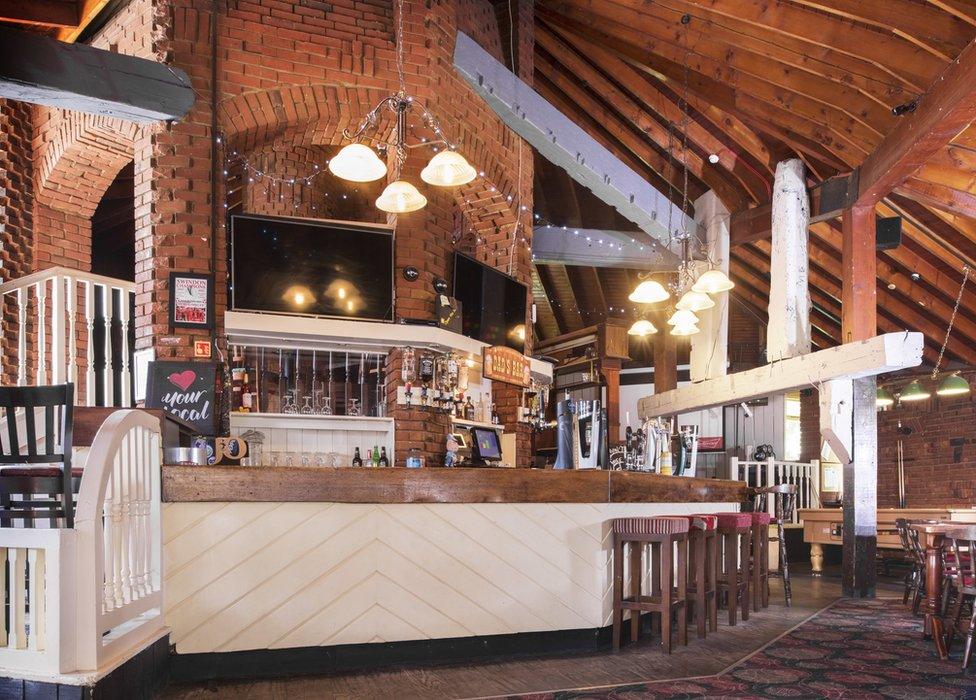
The pub was built as an irregular eight-sided polygon and contains a single bar area with the layout of a spiralling "nautilus shell", reflecting the horn in the nursery rhyme the pub is named after.
The asymmetrical roof and ramshackle brickwork reflects the eccentric craftsmanship given by the architect.
The Wheatsheaf, Camberley, Surrey
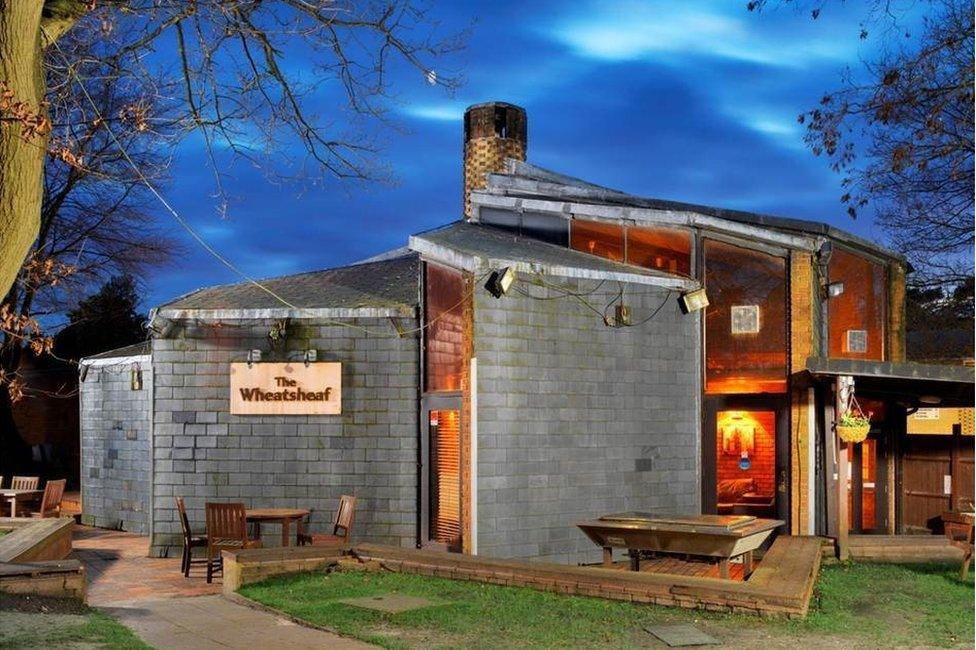
The Wheatsheaf pub, built in 1970 under direction from pub designers John and Sylvia Reid, served the new residential estate Heatherside.
The experimental design features a decagonal ratchet-wheel layout, around a central chimney column.
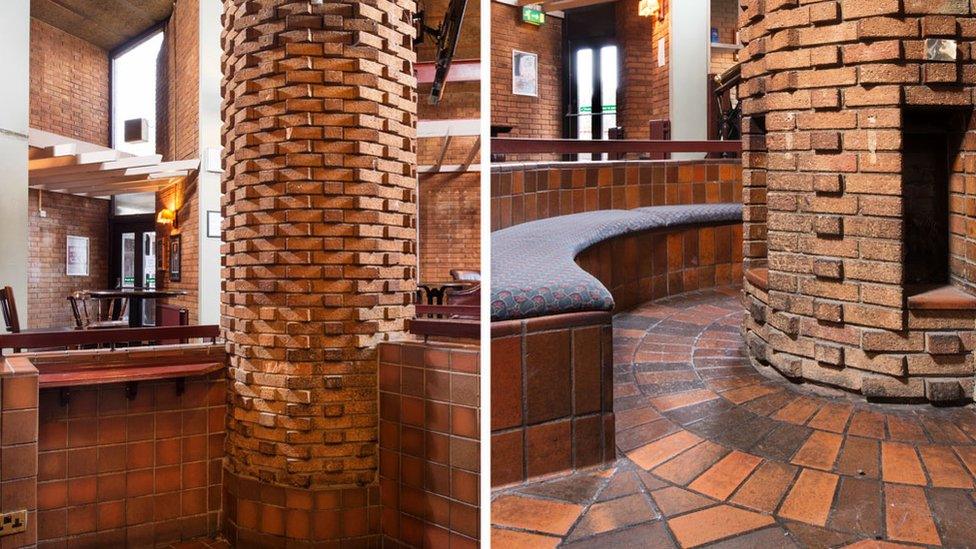
The stepped roof profile creates spaces filled with glazed panels, forming a series of windows at high level.
Today the pub still has its 1970s features: woodwool ceiling panels, exposed brick, and quarry tiles.
The Queen Bess Public House, Scunthorpe, Lincolnshire
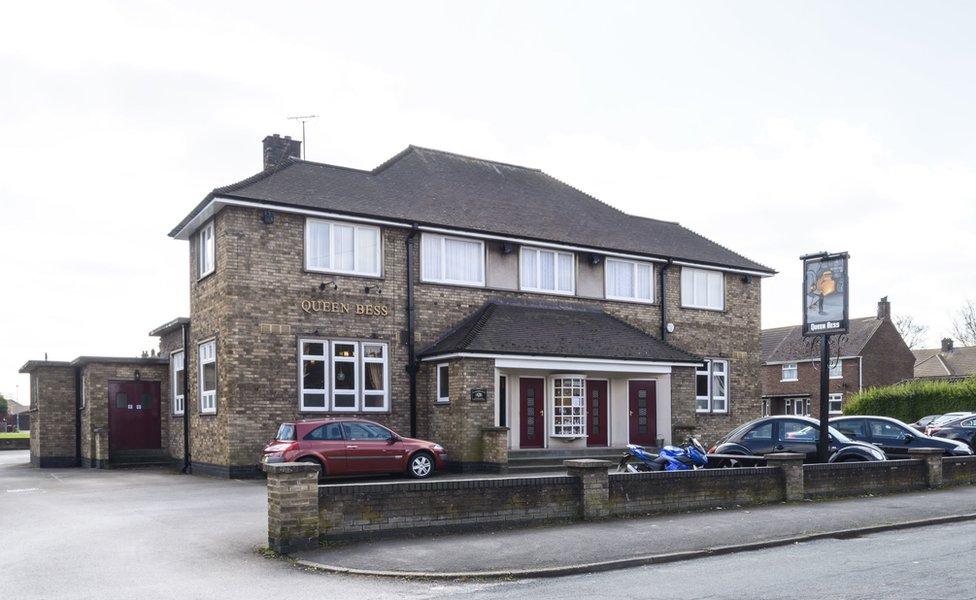
The Queen Bess pub, named after a record-breaking blast furnace at the nearby Appleby-Frodingham steelworks, is one of the best-preserved surviving examples of a post-war pub built by a major brewery.
Brewery Samuel Smith's of Tadcaster opened The Queen Bess in 1959 and designed the pub to be compatible with the new housing developments nearby.
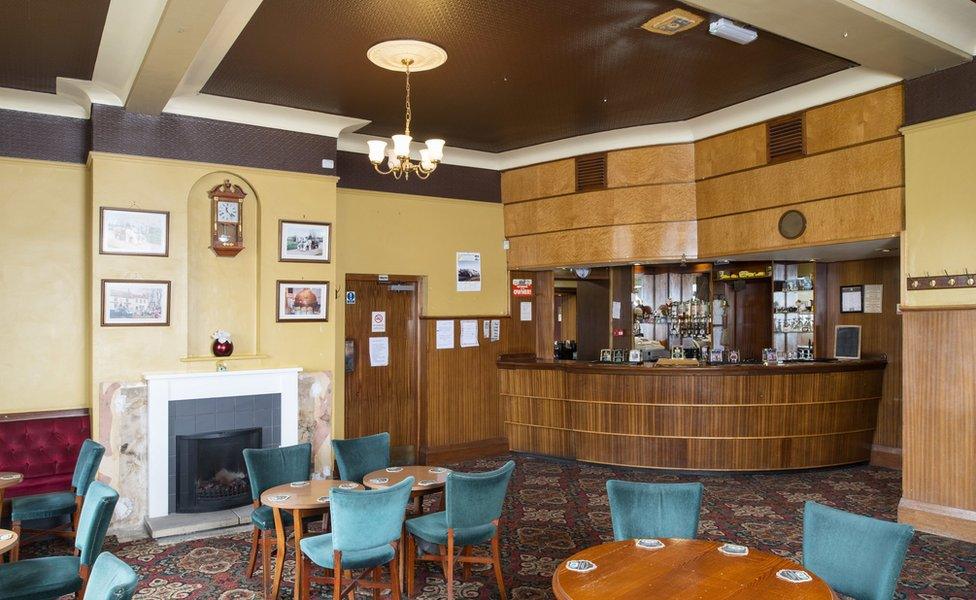
The building has a modest exterior of brick, with a plain tile roof covering, designed to be compatible with the new housing developments nearby.
The pub retains a high proportion of original interior fixtures and fittings, including bar counters, back bars, fixed seating and door joinery and furniture.
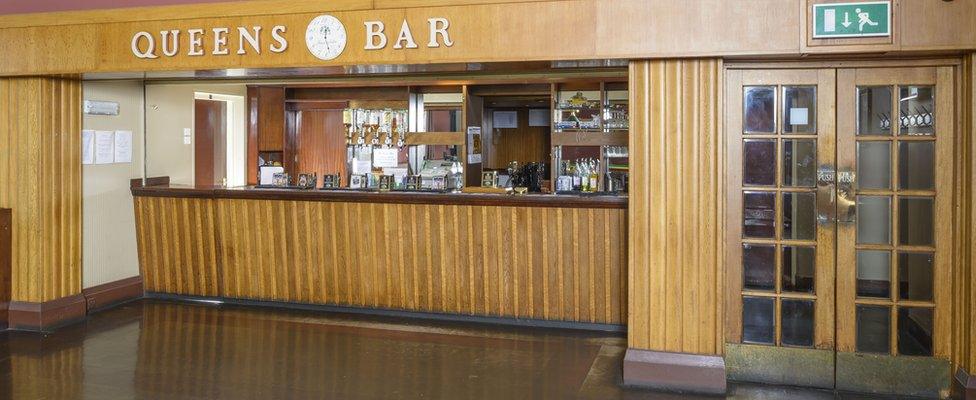
Photos are copyright.
- Published29 August 2013

- Published1 November 2014
